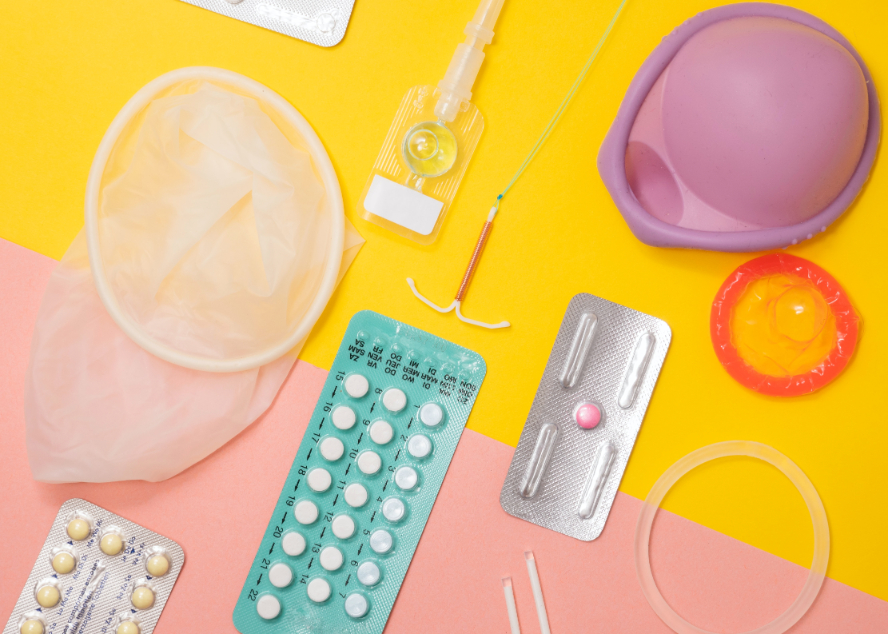

Knowledge
Fertility Alarm Bells – Is your body trying to tell you something? – femSense
*A guest post by femSense
Very often women are not aware that they may have fertility problems until they decide to have a baby and have difficulty conceiving. But sometimes your body is sending you signals that there might be an issue and you simply don’t understand them. All the more reason to track your cycle and listen to your body. Here are some of the signs to watch out for…
There are warning signals which the body uses as fertility alarm bells that you might have issues but unless you are tracking your cycle with a period or fertility tracker like femSense or are very body and health aware they can be easily overlooked. Add to that the fact that unfortunately women’s menstrual health is still a topic that is rarely discussed publicly, and you can understand why so many women don’t realise that they might have a problem until they are ready to start a family.
The good news is that many fertility problems can be treated medically but also by changes in lifestyle and diet. The first step is to become more aware of your fertility by monitoring your menstrual cycle and knowing what alarm bells you should be watching out for. You can take steps to improve your fertile health and boost your fertility before fertility issues make it difficult for you to get pregnant. femSense can help you make sense of your fertility, visit the talkingSense blog for a range of interesting articles on fertility, getting pregnant, hormones and much more.
Signs of possible fertility problems include:
Irregular Periods
The first day of your period is the first day of your menstrual cycle and your cycle should always be approximately the same length. Your cycle can vary from month to month depending on lifestyle influences, travel, stress, sickness, weight (too high or too low) etc but the variation should not be more than a few days.
A cycle length of between 20 and 38 days is considered normal. A woman’s period is considered irregular if her menstrual cycle is shorter or longer than this average or if the cycle length varies significantly from month to month. Irregular periods could be a warning signal for PCOS, pelvic inflammatory disease or thyroid problems.
Very heavy or long periods
Your menstrual flow is as individual as your menstrual cycle – there is no normal. Some women only ever have a couple of days of light flow while others endure a week of cramps, backache and heavy bleeding. A period is considered heavy when you are losing more than 80ml during each period and/or having periods which last more than 7 days. But how much is too much? If you have to change your sanitary products every hour or 2, are passing blood clots larger than 2.5cm, are bleeding through to your clothes or bedding or need to use 2 types of sanitary product together (for example, tampons and pads) then your flow would be considered very heavy.
If you regularly experience heavy periods, then you should visit your doctor. They could be a sign of hormonal imbalance caused by PCOS or thyroid problems, fibroids or endometriosis, an underactive thyroid gland, or diabetes.
Very dark or very pale menstrual blood
During your period the colour of the blood shed changes each day. It probably starts with a pink spotting, turning bright red as cramps kick in and the flow increases, before slowing down to a darker red, and then finishing up with dark brown spots. The colour of the blood basically depends on how long it has spent in your uterus and vagina. Fast flowing blood is bright red, whereas slow flowing blood oxidizes (reacts with oxygen in the body) and turns a dark red or even brown. Passing very dark blood at the beginning of a period can be an indication of Endometriosis. Very pale blood could be an indication of an infection, especially in combination with a smell, itching, pain, or fever.
No periods
Stress, sickness, or extreme sport can cause an occasional missed period but if you haven’t had a period in months, you should visit your doctor to find out why.
Painful periods
Many women experience cramps and pain during the first day or two of their period. Sometimes it comes in intense spasms, while at other times it may be dull but more constant, it is usually in the tummy but can spread into the back, pelvis, and thighs. The pain is usually at its worst when bleeding is at its heaviest. Normal period pain that does not have an underlying cause can usually be treated at home with painkillers, a warm bath, or a hot water bottle. Severely painful periods or pain that lasts longer than usual could be an indication of a medical condition such as endometriosis, pelvic inflammatory disease or fibroids.
Hormone imbalance
The hormones in our body are the body’s messenger system for various different systems and processes, including the menstrual cycle. Hormone levels fluctuate continuously during the menstrual cycle not only
triggering ovulation and menstruation but also influencing us physically and mentally. A hormone imbalance can therefore not only affect your period and fertility but also
your skin, weight, mood, hair growth, sex drive and much more. Symptoms of hormonal imbalance include irregular periods, mood swings, fatigue, and bloating. Other signs of a possible hormone imbalance include skin changes and acne, weight gain and hair growth on the face and chest.
Pain during sex
Discomfort or vaginal pain during sex can be caused by vaginal dryness, vaginal infections or allergies and irritations. These can be helped by using lubricant, infection treatments and avoiding products which cause irritation. However pelvic pain during sex can be a symptom of a medical condition like pelvic inflammatory disease, fibroids or endometriosis and
should be investigated by a doctor.
The most common problems
Fibroids are non-cancerous growths that develop in or around the womb (uterus). The growths are made up of muscle and fibrous tissue and vary in size. Many women are unaware they have fibroids because they do not have any symptoms.
Endometriosis is very difficult to diagnose, and the symptoms can vary. While some women may experience a lot of pain and endometriosis has a huge impact on their lives, others will only notice mild symptoms. It is a condition in which cells that usually grow inside the uterus grow outside of it. These cells make up the uterine lining, which thickens and sheds with each menstrual cycle. If this condition reaches a moderate or severe stage, it can affect your fertility, your hormonal chemistry, and even the
lining of your uterus.
Pelvic inflammatory disease (PID) is an infection of the female reproductive system which includes the womb, fallopian tubes, and ovaries. Symptoms include pelvis pain during sex, pain while peeing, bleeding between periods and after sex and very heavy and painful periods.
PCOS is a condition where the ovaries produce higher than normal amounts of male hormones. Symptoms include irregular periods, excess androgen – high levels of “male” hormones in your body, which may cause physical signs such as excess facial or body hair and polycystic ovaries – your ovaries become enlarged and contain many fluid-filled sacs (follicles) that surround the eggs (despite the name, you do not actually have cysts if you have PCOS).
About femSense:
femSense makes Sense of your fertility – from your first to your last period. Whether you want to have children or not. The femSense sensor patch measures body temperature around the clock, measures and confirms ovulation and shows your most fertile days in the app. In recent years, the young Austrian company has helped well over 14,000 women get pregnant, and is now working hard to obtain approval as a method of birth control.
–
Sources:
https://www.nhs.uk/conditions/fibroids
https://www.nhs.uk/conditions/pelvic-inflammatory-disease-pid
https://www.nhs.uk/conditions/polycystic-ovary-syndrome-pcos
–
You might also like...

Female hormones: What you need to know about reproductive hormones, the menstrual cycle, and fertility
When you’re struggling with fertility, one of the first places to look is your hormones. Certain vital reproductive hormones are in charge...
Silvia Hecher
January 17, 2024

Fertility blood test: Why does it need to be cycle days 2-5?
When you test your fertility with LEVY, you will always check your basic reproductive hormone levels (including FSH, LH, TSH, Prolactin, Estradiol,...
Lena
September 8, 2022

Forms of amenorrhea and fertility
Not getting your period is a condition called amenorrhea. It’s important for fertility because not having a menstrual cycle with monthly ovulation...
Lena
January 18, 2022

6 Interesting Facts About Ovaries You Might Not Know
Women have two ovaries which are located on either side of the uterus. They’re around 3-5 cm long – about the size...
Kayla
April 20, 2022

What to expect when testing your fertility with LEVY
If you’ve been trying to conceive for a while, it’s totally normal to feel frustrated. Why hasn’t it happened for you yet,...
Kayla
February 3, 2022

Your Complete Guide to Birth Control Options and Fertility
If you’ve been using birth control for a while, you may be wondering how it can impact your fertility now that you...
Kayla
February 21, 2022

Fertility Foods for Women to Help You Get Pregnant Faster
How you nourish your body is key not only when you have a baby in your belly, but also to help prepare...
Kayla
March 22, 2022

What your AMH levels can tell you about fertility
FSH, LH, estrogen, progesterone… If you’re struggling to have a baby, you’re probably becoming an expert on all things hormones. AMH is...
Lena
August 25, 2022

Why Vitamin D matters for fertility
Vitamin D is a very important nutrient to keep our bodies healthy and working as they should. But did you know that...
Kayla
January 18, 2022




